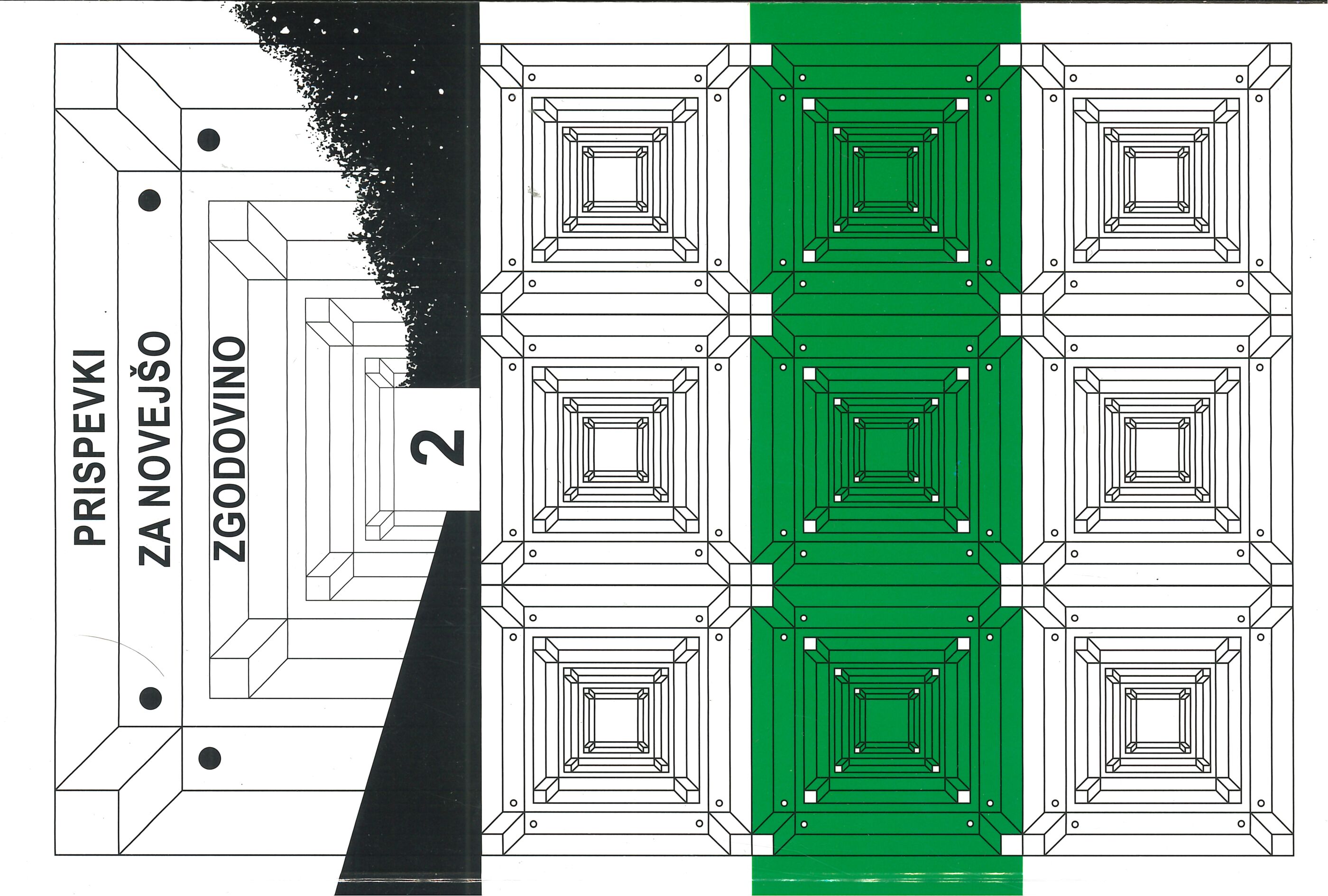Titoizem in konec Jugoslavije
DOI:
https://doi.org/10.51663/pnz.56.2.09Keywords:
Jugoslavija, Tito, socializem, politikaAbstract
Although the second Yugoslavia was often called Tito’s Yugoslavia in political parlance, the term Titoism was rarely used for its political regime and the structure of its government at the time. The term was closely connected to the person of Josip Broz Tito. The connection was based both on the name and on the fact that the term applied to events that happened during Tito’s rule. It is simply an eponym in the true sense of the word. On one hand, Titoism was the principle on which the second Yugoslavia was based, and on the other it was a method of governing. Titoism can also describe the Yugoslav type of socialism and its characteristic features, as well as the country in general. Titoism is not so much an ideology, but rather a practice. It is the government's means. Titoism is Yugoslavia as a country after World War II, it is the structure of the state administration, i.e. the federal government, and the principle on which it is based, i.e. the recognition of the nation’s right of self-determination, including the right to secede, as well as the country’s political system – the workers’ self-management. Everything that can be understood as Titoism was representative of the second Yugoslavia. On one hand, Titoism was the means for the country’s rise, its creation and development (progression), but on the other hand, Titoism already contained the seed of the country’s dissolution, its demise and the disintegration of the whole system known as Titoism. Of what was actually the end of the second Yugoslavia.
References
Basara, Mihajlo. »Titov kult u Jugoslovenskoj narodnoj armiji.« V: Tito – viđenja i tumačenja, 779–96. Beograd: Institut za noviju istoriju Srbije in Arhiv Jugoslavije, 2011.
Bilandžić, Dušan. Jugoslavija poslije Tita: (1980–1985). Zagreb: Globus, 1986.
Bilandžić, Dušan. Zgodovina Socialistične federativne republike Jugoslavije. Ljubljana: Partizanska knjiga, 1980.
Čepič, Zdenko. »Jugoslovanske reforme v šestdesetih.« V: Slovenija – Jugoslavija, krize in reforme 1968/1988, 41–66. Ljubljana: Inštitut za novejšo zgodovino, 2010.
Čepič, Zdenko. »Načela in počela socialistične demokracije.« Prispevki za novejšo zgodovino, št. 1 (2011): 271–96.
Čepič, Zdenko. »Politizacija jugoslovanske vojske v obdobju demokratizacije in osamosvajanja Slovenije.« Prispevki za novejšo zgodovino, št. 2 (2008): 117–48.
Dedijer, Vladimir. Josip Broz Tito. Prispevki za življenjepis. Ljubljana: Cankarjeva založba, 1953 in Državna založba Slovenije, 1972.
Gabrič, Aleš. »Nacionalno vprašanje v Jugoslaviji v prvem povojnem obdobju = The national question in Yugoslavia in the immediate postwar period.« V: Jugoslavija v hladni vojni = Yugoslavia in the cold war, 403–24, 425–48. Ljubljana: Inštitut za novejšo zgodovino in Toronto: University = Ljubljana: Institute for Contemporary History in Toronto: University, 2004.
Jović, Dejan. »Osma sjednica. Uzroci, značaj, interpretacije.« V: Osma sednica CK SKS. Uzroci, tok i posledice. Srbija 20 godina kasnije. 1987–2007. Beograd: Institut za savremenu istoriju in Centar za proučevanje evropskog susedstva, 2008.
Jović, Dejan. Jugoslavija – država koja je odumrla. Uspon, kriza i pad Četvrte Jugoslavije: (1974. –1990.). Zagreb: Prometej in Beograd: Samizdat B92, 2003.
Kardelj, Edvard. Boj za priznanje in neodvisnost nove Jugoslavije 1944–1957. Spomini. Ljubljana: Državna založba Slovenije in Beograd: Radnička štampa, 1980.
Lusa, Stefano. Razkroj oblasti. Slovenski komunisti in demokratizacija države. Ljubljana: Modrijan, 2012.
Mamula, Branko. Slučaj Jugoslavija. Podgorica: CID, 2000.
Milosavljević, Olivera. Antibirokratska revolucija 1987–1989. godine. Dijalog povijesničara-istoričara, knj. 8. Zagreb: naklada Friedrich Neumann, 2004.
Munda, Mirko. Beograjska spletka. Maribor: Večer, 2001.
Nikolić, Kosta. »'I posle Tita –Tito'. Održavanje i rušenje Titovog kulta u Srbiji 1980–1990.« V: Tito – viđenja i tumačenja, 760–78. Beograd: Institut za noviju istoriju Srbije in Arhiv Jugoslavije, 2011.
Osma sednica CK SKS. Uzroci, tok i posledice. Srbija 20 godina kasnije: 1987–2007. Beograd: Institut za savremenu istoriju in Centar za proučevanje evropskog susedstva, 2008.
Petranović, Branko. Istorija Jugoslavije: 1918–1978 (3. knjiga). Beograd: Nolit, 1980.
Petranović, Branko. Istorija Jugoslavije: 1918–1988. Beograd: Nolit, 1989.
Pirjevec, Jože. Jugoslavija 1918–1992. Nastanek, razvoj ter razpad Karadjordjevićeve in Titove Jugoslavije. Koper: Lipa, 1995.
Prinčič, Jože. Pot do slovenske narodnogospodarske suverenosti 1945–1991. Ljubljana: Inštitut za novejšo zgodovino, 2013.
Repe, Božo. 'Liberalizem' v Sloveniji. Ljubljana: RO ZZB NOV Slovenije, 1992.
Režek, Mateja. Med resničnostjo in iluzijo. Slovenska in jugoslovanska politika v desetletju po sporu z Informbirojem: (1948–1958). Ljubljana: Modrijan, 2005.
Smole, Jože. Pripoved komunista novinarja (1945–1980). Ljubljana: ČZP Enotnost, 1994.
Vodopivec, Peter. »Od poskusov demokratizacije (1968-1972) do agonije in katastrofe (1988–1991).« V: Slovenija – Jugoslavija, krize in reforme 1968/1988, 41–66. Ljubljana: Inštitut za novejšo zgodovino, 2010.
Ћосић, Добрицa. Пишчеви зaписи (1951–1968). Беогрaд: Филип Вишњић, 2001.
Downloads
Published
Issue
Section
License
Authors who publish with this journal agree to the following terms:
- Authors retain copyright and grant the journal right of first publication with the work simultaneously licensed under a Creative Commons Attribution License that allows others to share the work with an acknowledgement of the work's authorship and initial publication in this journal.
- Authors are able to enter into separate, additional contractual arrangements for the non-exclusive distribution of the journal's published version of the work (e.g., post it to an institutional repository or publish it in a book), with an acknowledgement of its initial publication in this journal.
- Authors are permitted and encouraged to post their work online (e.g., in institutional repositories or on their website) prior to and during the submission process, as it can lead to productive exchanges, as well as earlier and greater citation of published work (See The Effect of Open Access).


